Ilke-Ta interview and video
23.5.22Back in April we caught up with Ilke-Ta, AKA Jamie Sykes when he was up in Lancaster recording his commission as part of the Evolve series.
Ilke-Ta shared some of thoughts about his journey and process as a musician, composer and producer, and what he loves about Lancaster.
Tell us about where you are coming from as a drummer and a producer, and how your sound has evolved.
As a drummer, I largely come from a punk background. I have always been very interested in the frantic energy of live performance, and though the compositional style has changed over time, I feel that the fundamental energy has remained the same. As a producer I am heavily influenced by contemporary jazz and hiphop, and tend towards manipulating samples from live performances. As my drumming has developed and has been more informed by the possibilities provided through subdivisions, metric modulation, displacement and more, the sample manipulation has followed suit which has naturally caused compositions to sound glitchy, often abrasive and uncomfortable in their rigidity despite being created in a largely improvised, free-flowing way.
It’s quite unusual for a drummer to lead a band, how does this impact your sound and approach to composition?
Composing and leading the band from behind the kit has been an extremely fun experience. I thoroughly enjoy creating melodies that feel very meaningful to me, before distorting them considerably with unconventional rhythms. There is a catharsis to creating something beautiful before altering it heavily, making it feel bizarre. Having a band that can recreate this is a blessing, performing with the intention of creating discomfort at points. Rather than the drums holding a tempo for the band, it becomes more about the band and drummer feeling in sync with one another and not being afraid to make things sound ugly on occasion.
Do you have any advice for young musicians who want to get into creating their own music and performing it live?
It is always great to see young musicians coming through, and I guess one piece of advice would be to find ways that you enjoy practicing. Our focus as musicians when learning the foundations of scales and rudiments can often be to just run through them as they are, one after another, as opposed to exploring the really fun applications of these. Rather than just playing a rudiments over and over, we can make that rudiment into a beat and orchestrate it all over the kit, which seems far more fun!
I guess the other piece of advice is to not be disheartened by seeing musicians that seem far more advanced than you when starting out. Every time you listen to a great musician, you are absorbing so much information and experiencing patterns that will one day become second nature to you. You can listen to so many greats and the more you listen to, the more your own style will develop subconsciously and slowly become more apparent. We don’t exist by comparison to one another, and noone sounds like you, meaning you never have to feel in competition and can instead truly enjoy the work of others, knowing it will somehow inform your own musical development.
We really enjoyed Major Ruse at the September All-Dayer last year and it’s great to welcome you back to Lancaster – what are your impressions of the city?
All of us in Major Ruse massively enjoyed our Lancaster Jazz Festival experience, and it was amazing to see such a massive undertaking after all of the pressures that the pandemic had caused. Then entire Lancaster Jazz team were so welcoming and passionate about live music, and we felt very lucky to be a part of it.
The city of Lancaster feels fascinating to me. The architecture is steeped with history, the people are inviting and friendly and there currently seems to be a real desire to bring art to the forefront with regular exhibitions, gigs and collaborations between artists. Lancaster feels very community-oriented, with people supporting local businesses and sharing a real want for others to have success in their creative endeavours! I was blown away by how lovely the people of Lancaster have been in all the places we went to from the Accidental brewery to the Priory itself!
You collaborate with Johnny McJohnston to bring visuals and projection mapping into your work – how did that come about and how has it affected your approach to composition?
I have been working with Johnny for a number of years now. We originally worked together with our friend Jenny Hibberd to create an installation called “The Silent Orchestra” for people suffering from Alzheimer’s disease and hearing loss. Working in conjunction with the Institute of Mental Health, our aim was to create a multi-sensory method of creating and experiencing music.
Johnny is an incredible artist, and we really wanted to take this same idea and bring it to all subsequent live performances, allowing people to experience music not only sonically but also visually. Due to the visuals being audio-responsive, it has allowed for a more improvisational approach to composition in which the subtleties of dynamics, frequencies and tempo are all represented within a fraction of a second. Due to the expansive nature of Johnny’s technology, no two performances will ever be the same! We were also very fortunate to have Sami Al-Nashee of Orange Reel joining us, and he has an incredible way of capturing performance in a truly cinematic way, allowing for the magic of live performances and incredible spaces to really shine through. I feel very fortunate to be a part of this team.
We’re really looking forward to your Evolve commission performance! What can we expect?
I feel very fortunate to be a part of this Evolve commission, it has been such a great opportunity! Audiences can expect an exciting and unique audiovisual experience, with complex patterns and rhythmical intricacies, sometimes blissful and sometimes uncomfortable.




